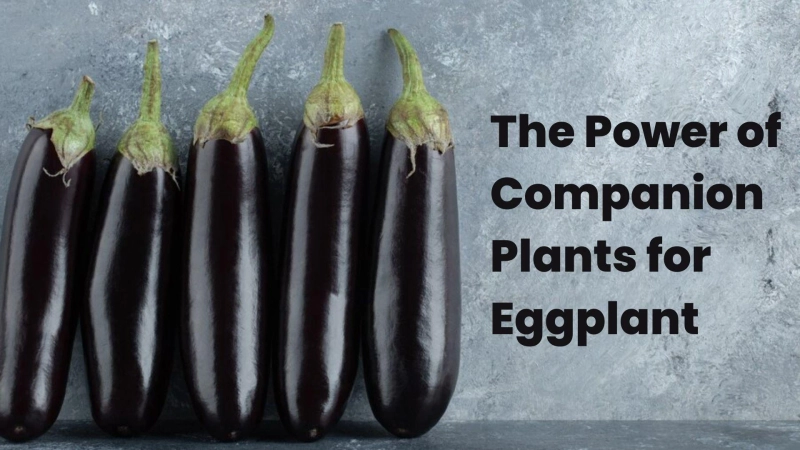With its glossy purple skin and rich, earthy flavor, Eggplant is a beloved addition to many cuisines worldwide. Whether grilled, roasted, or sautéed, this versatile vegetable adds depth and complexity to countless dishes. But did you know that the key to maximizing the health and yield of your eggplants might lie in the company they keep? Enter companion planting – a strategy that pairs compatible plants to promote growth, deter pests, and enhance overall garden health.
Companion Plants for Eggplant: Harnessing Nature\'s Synergy
Companion planting isn\'t just about aesthetics; it\'s about leveraging the natural relationships between different plant species to create a thriving ecosystem in your garden. Several eggplant companion plants can work wonders:
- Basil: This aromatic herb is a culinary companion to Eggplant and a boon in the garden. Basil repels pests like aphids, mosquitoes, and thrips while enhancing the flavor of nearby eggplants.
- Beans: Legumes like beans and peas are excellent companions for Eggplant. They set nitrogen in the ground, enriching it with essential nutrients that eggplants thrive on. Their upright growth habit also provides shade and support to the sprawling eggplant vines.
- Peppers: Like eggplants, peppers belong to the nightshade family and share similar growing requirements. Planted together, they can confuse pests and reduce the risk of infestation. Plus, their contrasting colors add visual interest to the garden.
- Nasturtiums: These vibrant flowers attract pollinators like bees and butterflies and repel pests such as aphids, whiteflies, and cucumber beetles. Plant them around your eggplants to create a colorful and pest-resistant border.
- Marigolds: Known for their pest-repelling properties, marigolds are a must-have companion for eggplants. Their pungent aroma masks the scent of vulnerable plants, deterring harmful insects like nematodes and spider mites.
Growing Eggplant from Seeds: Nurturing Nature\'s Bounty
Before enjoying the fruits of your labor, you\'ll need to start with quality seeds and the right growing conditions. Here are some tips for growing eggplants from seeds:
- Choose the Right Variety: Eggplants come in various shapes, sizes, and colors, so choose a variety that suits your taste and growing environment. Popular options include Black Beauty, Japanese, and Italian varieties.
- Start Indoors: Eggplants are sensitive to cold temperatures, so start your seeds indoors 6-8 weeks (about two months) before the last frost date. Use a well-draining seed starting mix and provide adequate warmth and light for optimal germination.
- Transplant with Care: When the seedlings have developed their second set of true leaves, transplant them into bigger containers or directly into the garden. Harden off the seedlings gradually to acclimatize them to outdoor conditions.
- Provide Ideal Growing Conditions: Eggplants thrive in warm, sunny locations with fertile, well-draining soil. Keep the soil moist but not waterlogged, and support the heavy fruiting branches as they grow.
- Monitor for Pests and Diseases: Regular Inspection is critical to catching pests and disease problems early. Keep an eye out for common eggplant pests like flea beetles, aphids, and spider mites, and take proactive measures to control them, such as handpicking, insecticidal soap, or neem oil.
- Harvest at the Right Time: Eggplants are prepared for harvesting when they achieve their full size and have glossy, firm skin. Use sharp scissors or pruners to cut the fruits from the plant, leaving a small portion of the stem attached.



